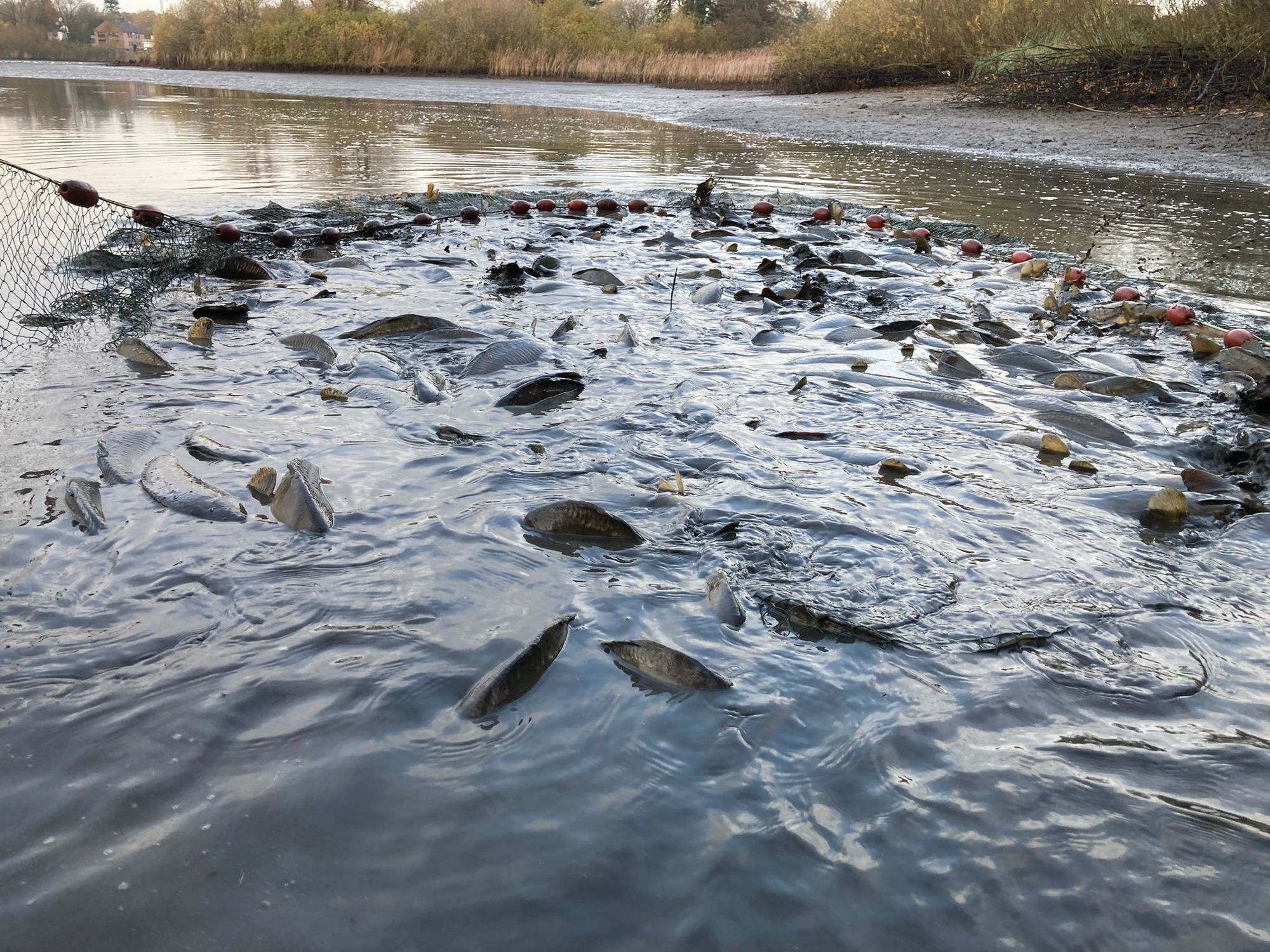Expertise
Organic-aquaculture in Germany – an everlasting niche?
Dirk Klinkmann, Cornelia M. Kreiß , Ulfert Focken | 02.05.2024
Organic aquaculture has so far been a niche sector in Germany. Fewer than 50 farms operate organically and, except for mussel fishermen, the number has fallen in recent years – even though there is a demand for organically and sustainably produced fish. Researchers at the Thünen Institutes of Fisheries Ecology and Organic Farming have analysed the reasons behind and which measures could boost the sector.

The study began by questioning where the strengths and weaknesses as well as opportunities and risks of organic aquaculture in Germany are situated. Researchers at the Thünen Institutes of Fisheries Ecology and Organic Farming have outlined potential improvements through a SWOT analysis (in German).
Organic fish means fish from aquaculture
In 2022, German aquaculture farms produced a total of 26,464 tons, with approximately 16% originating from organic sources. The majority of this organic output was attributed to mussel production.
Organically produced fish and seafood are exclusively sourced from aquaculture. Wild-caught fish are not certified under the EU organic scheme, as it is generally not possible to determine where the animals have spent their lives and what they have fed on. Similar to organic agricultural farms, organic aquaculture farms operate in accordance to legally defined principles concerning water quality, production, feed and husbandry. Because of the limited number of farms, organic aquaculture remains absent in certain regions in Germany, leading consumers in these areas equate conventional regional products with organic products.
Demand and supply
Products from national organic aquaculture are only available to a very limited extent in German food retailers, primarily limited to trout fillets the majority of organic products offered in food retail are imported, with significant contributions from Norwegian salmon fillets and overseas prawns. Apart from mussels, there is negligible export of German organic aquaculture products 80% of all aquaculture products on the German market do not come from domestic production - imports therefore threaten domestic aquaculture with its low level of self-sufficiency.
However, the demand for organic fish products is still relatively low compared to other organic foods such as fruit, vegetables and meat. Current demand is largely focused on species that cannot be produced in Germany following EU organic regulations, such as salmon and shrimp.
Mussels, carp and rainbow trout
Carp, salmonids and mussels are important in German organic aquaculture. For all species, very natural processes with high biodiversity and widespread direct marketing convey a high level of credibility. This fulfills social expectations to a high degree and provides an opportunity for regional value creation and the marketing of convenience products These advantages align with the increasing demand for sustainable aquaculture products.
While there has been an increase in mussel farms in Germany adopting organic production methods, in contrast, the number of carp and trout farms, which are more numerous, is declining.
Bureaucracy and a poor image stand in the way
The SWOT analysis summarizes the reasons for the difficult economic situation of carp and trout farms in particular: Virtually no new aquaculture facilities are approved in Germany and marketing is hampered by a lack of producer organizations. Predators such as cormorants, otters and herons cause high losses and threaten the existence of many farms. Simultaneous labeling with sustainability labels known to consumers, such as those of the Marine Stewardship Council (MSC) and the Aquaculture Stewardship Coucil (ASC), alongside organic labeling often leads to confusion among consumers. Despite the differences, this creates competition with organic certification (Risius & Hamm 2017 - in German). Moreover, the mostly small-scale businesses encounter large structures in processing and marketing, which often dominate the market through imports. And finally, carp, an important fish in organic aquaculture, is seen by many consumers as an unappealing edible fish. These aspects are a particular problem for freshwater farms.
Boost from protective measures, image campaign and area premium
Suggestions for actions can be drawn from the SWOT analysis, such as the promotion of protective measures against predators specifically for organic aquaculture farms, launchingan image and information campaign to promote the benefits or the introduction of an area premium aligned with federal states programmes as an incentive for continuous organic production in pond farming.






